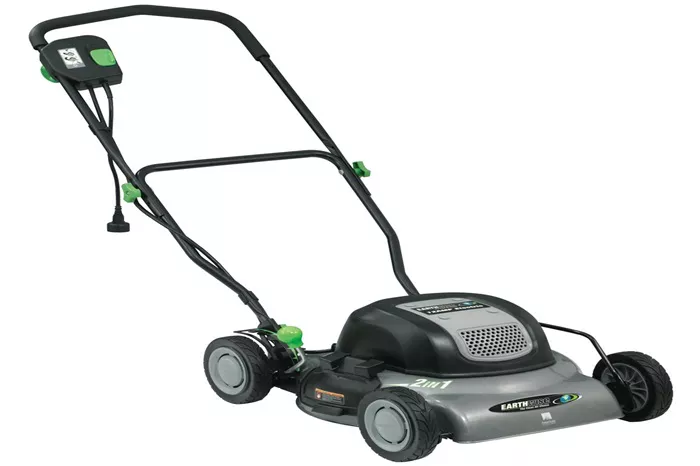When it comes to maintaining a well-kept lawn, choosing the right lawn mower is essential for achieving the best results. One option to consider is the corded lawn mower, an electric mower powered by an extension cord plugged into an electrical outlet. In this article, we will explore what a corded lawn mower is, how it differs from other types of mowers, its key features, benefits, potential drawbacks, safety tips, and how it compares with cordless and gas-powered mowers.
What is Corded Lawn Mower?
A corded lawn mower is an electric mower that operates using a continuous power supply provided by an extension cord plugged into an electrical outlet. Unlike cordless mowers, which are powered by rechargeable batteries, or gas-powered mowers, which rely on gasoline, corded mowers need a constant connection to an electrical source to function. This feature allows users to mow their lawns without worrying about battery life or refueling, making it a convenient option for smaller to medium-sized lawns.
How it Differs from Cordless and Gas-Powered Lawn Mowers?
Cordless (Battery-Powered) Lawn Mowers: Cordless mowers are powered by rechargeable batteries. They offer more mobility than corded mowers since there’s no need for a power cord. However, the downside is that battery life is limited, and they need to be recharged regularly, which can be a hassle for larger lawns.
Gas-Powered Lawn Mowers: Gas mowers are powered by gasoline and are typically more powerful, making them suitable for larger yards or tougher grass. However, they require more maintenance (e.g., oil changes, spark plug replacements) and produce emissions, making them less eco-friendly than corded mowers.
Key Features of Corded Lawn Mowers
Power Source: The most significant feature of a corded lawn mower is its power source. By connecting the mower to an electrical outlet with an extension cord, you get a continuous power supply throughout the mowing process. This eliminates the need to worry about recharging batteries or refueling during or after each use.
Motor: Corded lawn mowers are equipped with electric motors, which generally produce less noise compared to gas engines. Additionally, electric motors require minimal maintenance, with no need for oil changes or fuel refills. This makes them more cost-effective and user-friendly in the long run.
Cord Length: One of the challenges of using a corded mower is the requirement for a long extension cord to cover your lawn area. The cord length limits your range of movement, so it’s important to have access to multiple outlets or use a cord that is long enough to cover your entire lawn without needing frequent repositioning.
Benefits of a Corded Lawn Mower
Eco-Friendly: A major advantage of corded lawn mowers is their environmental impact. They produce zero emissions, which makes them a greener choice compared to gas-powered mowers, which emit harmful gases like carbon monoxide and nitrogen oxides.
Consistent Power: Corded lawn mowers provide uninterrupted power as long as they remain plugged into an outlet. This means there’s no risk of losing power due to battery depletion, as is common with cordless mowers. You can complete your mowing tasks without worrying about recharging or running out of fuel.
Lightweight and Easy to Maneuver: Corded lawn mowers are typically lighter than their gas-powered counterparts, which makes them easier to maneuver, especially in tight spaces or for those who find pushing heavier mowers physically taxing.
Potential Drawbacks of a Corded Lawn Mower
Cord Management: One of the biggest challenges when using a corded lawn mower is managing the extension cord. The cord can become a tripping hazard if it’s not properly monitored, and it may get tangled or snagged on obstacles while mowing. It’s crucial to stay aware of the cord’s position to avoid accidents.
Limited Range: The range of a corded mower is inherently limited by the length of the extension cord. If you have a large lawn or one with limited access to electrical outlets, you may need to invest in a longer cord or reposition the mower several times during use. This can be cumbersome for homeowners with expansive yards.
Safety Tips for Using a Corded Lawn Mower
Keep the Cord Away from the Cutting Path: Always ensure the extension cord stays clear of the mower’s cutting path to prevent it from being accidentally cut or damaged. This also reduces the risk of tripping over the cord while moving around.
Use the Right Extension Cord: Choose an extension cord that meets the power requirements of your mower. Ensure that the cord is rated for outdoor use, as it will need to withstand the elements and prevent electrical hazards.
Monitor the Cord’s Position: Be constantly aware of the cord’s location to avoid running over it or getting it tangled in obstacles. Some mowers come with cord management systems to help keep the cord organized and out of the way.
Comparison with Other Types of Mowers
While corded lawn mowers have their advantages, it’s essential to understand how they compare to other types of mowers:
Cordless Lawn Mowers: While offering more flexibility and mobility, cordless mowers have the disadvantage of limited battery life. For those with smaller lawns, however, they can be a convenient option.
Gas-Powered Lawn Mowers: These mowers are powerful and ideal for larger lawns or tough terrains. However, they are noisier, require more maintenance, and have a greater environmental impact due to their fuel consumption and emissions.
Conclusion
Corded lawn mowers are an excellent choice for homeowners looking for an eco-friendly, cost-effective, and low-maintenance option for maintaining their lawns. With a constant power supply, these mowers provide consistent performance without the need for recharging or refueling. However, they do come with some limitations, including the need for a long extension cord and potential cord management challenges. Understanding these pros and cons will help you determine whether a corded lawn mower is the right fit for your lawn care needs.
Related topics:

